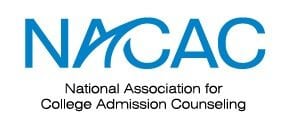 Entitlements and short term thinking have a considerable impact on the world we live in today. This is especially true of the younger generation that have access to technology and ease in a way that previous generations could not relate.
Entitlements and short term thinking have a considerable impact on the world we live in today. This is especially true of the younger generation that have access to technology and ease in a way that previous generations could not relate.
With this mindset comes a bottom line mentality and a need for instant gratification. Internships are a great example of this issue as students not only avoid unpaid internships like the plague but demand opportunities to make money.
It is about having that money now and needing a tangible reward that can be utilized quickly. Although this new generation is the most entitled yet, for them to succeed in the real world it will require the same attributes that have been needed since the beginning of time.
A strong work ethic is still necessary for the vast majority of individuals to succeed and as we get older, we begin to understand the value of patience and seeing the bigger picture in life. While it is a hard sell to students, understanding the big picture of a well-designed internship is not only valuable for college applications but can pave the way for their future.
Before extolling the value of internships it is first important to define what an internship should look like. Internships should be about a hands-on, learning experience that introduces students to what life is like in a career of interest.
Internship Supervisors should be mentors, working with students on a particular task or reviewing results as opposed to simply offering up assignments with little interaction. The latter is an example of a job and the employee-employer relationship.
Internship Supervisors may pay students or they may not but regardless of payment the best Supervisors view the experience as an investment in the future. If the tasks of an internship involve real hands-on work with a committed mentor, the values are numerous and fruitful.
Of all the valuable tools and lessons that can be learned from an internship, an ability to explore a career of interest is perhaps the biggest benefit of an internship. Students tend to choose, at least initially, the same few careers that they know of.
The most common examples include lawyer, doctor and teacher but students do not have knowledge or access to the careers of tomorrow without internships. While exploring careers, the student also learns about workplace culture, language and what it takes to succeed not just in their field of interest but in general.
Along with the exploration of careers, students also have an opportunity to make valuable connections that can help them in the future. In a world of “it’s not what you know but who you know,” connections are pivotal for all individuals and especially students who do not have the luxury of years of experience to develop relationships. All of these aforementioned positives in obtaining an internship also help students get into college and develop a resume.
In the competitive world of the college application process, there is no substitute for real world experience. Students are able to list skills that they learned, tasks that they completed and can prove to their desired schools that they can balance school, family, a social life and an internship.
Admissions officers are painted a picture of a student with the time management skills that can thrive on the college campus, a necessary adjustment that can be harder than the academic rigors for many students. Best of all, after being accepted to college, these experiences can go a resume for opportunities at jobs, college-level internships, grad school applications, etc.
While the bottom line result isn’t always conceptualized by the student immediately, in time it is hard to argue against the many benefits of an internship. Perhaps if all students had the right internship with the right mentor, the entitlement mentality would cease to exist in the future.
That may be an idealistic and an unrealistic statement but student by student these kinds of opportunities can have a real impact on our future as a nation and as a society.




